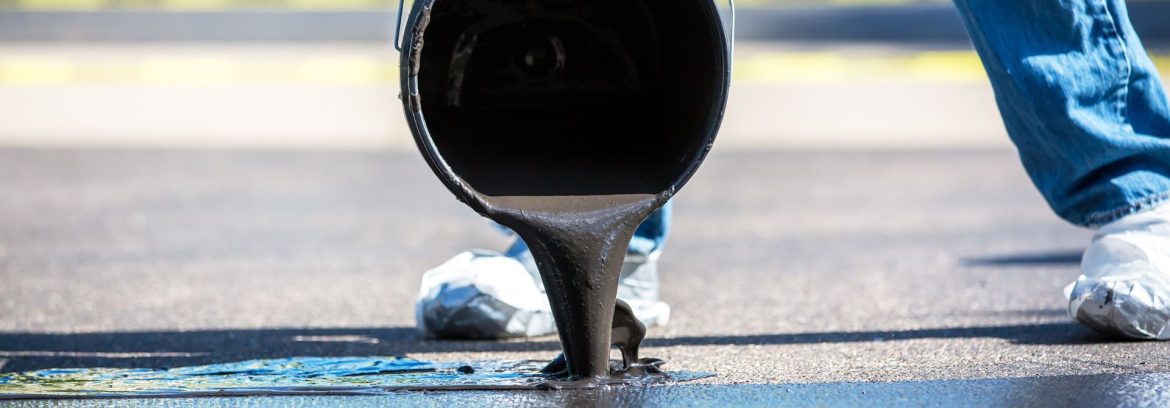What’s in Asphalt Sealant? Breaking Down the Materials
You’ve heard that seal coating protects your asphalt driveway or parking lot — but what exactly is that black liquid being applied? Is it just paint? Oil? Something more complex?
The truth is, asphalt sealant is a carefully engineered material designed to bond, protect, and extend the life of your pavement.
At J. Perry Paving, we only use professional-grade sealants that perform well in Rhode Island’s climate — because the right formula makes all the difference.
The Core Components of Asphalt Sealant
Most commercial asphalt sealants contain four primary ingredients:
1. Bitumen or Refined Tar (Coal Tar or Asphalt Emulsion)
This is the primary protective agent, giving the sealant its strength and black color.
- Coal tar sealants offer excellent protection against oil, gas, and chemical spills
- Asphalt emulsion sealants are more eco-friendly and commonly used in residential applications
Both provide a barrier against water, UV rays, and oxidation.
2. Mineral Fillers
These include materials like clay, sand, and slate dust. They:
- Improve traction
- Increase durability and thickness
- Help with crack-filling during application
3. Water
Used to make the sealant fluid enough to spread. The water evaporates during the drying/curing process, leaving the solid materials bonded to the surface.
4. Additives
Contractors may include optional additives to improve performance:
- Fast-dry agents for quick reopening of lots
- Rubber or latex for flexibility and crack resistance
- Polymer resins for enhanced bonding and weather durability
→ Our seal coating service uses a balanced formula tailored for Rhode Island’s conditions
Does the Type of Sealant Matter?
Absolutely. Not all sealants are created equal. Cheaper, watered-down mixtures:
- Wear out faster
- Offer little protection
- May flake or peel prematurely
We use high-solid, commercial-grade products that offer:
- Longer life (up to 3–5 years between applications)
- Better adhesion
- Enhanced chemical and weather resistance
What About Environmental Impact?
Some sealants, especially coal tar-based ones, have been restricted in parts of the U.S. due to environmental concerns.
In Rhode Island, asphalt emulsion sealants are commonly used for:
- Residential driveways
- Environmentally sensitive areas
- Schools, parks, and playgrounds
We’ll always help you select a product that balances performance and environmental responsibility.
→ Read: How Often Should You Seal Coat Your Driveway or Lot?
What Happens During Application?
When you schedule a seal coating service with J. Perry Paving, we follow a professional process:
- Power cleaning and surface prep
- Crack filling and edge protection
- Application by brush (edges) and spray (center)
- Curing and drying over 24–48 hours
No shortcuts. No guesswork. Just results that last.
Why It Pays to Use a Pro
DIY sealant kits often contain low-solid, low-quality materials. These may look decent for a few weeks — but they don’t protect your pavement long-term.
When you hire J. Perry Paving, you get:
- High-performance, tested materials
- Trained crews using the right equipment
- Honest timing recommendations — no over-sealing
→ Learn more about our 20+ years of experience
Final Thoughts
Asphalt sealant isn’t just “black paint” — it’s a specially designed material that keeps your pavement from cracking, crumbling, and fading too soon. When done right, it protects your investment and boosts your property’s curb appeal.
Have questions about what’s in your seal coat?
Contact J. Perry Paving — we’ll walk you through the process and help you choose the right protection for your surface.

